


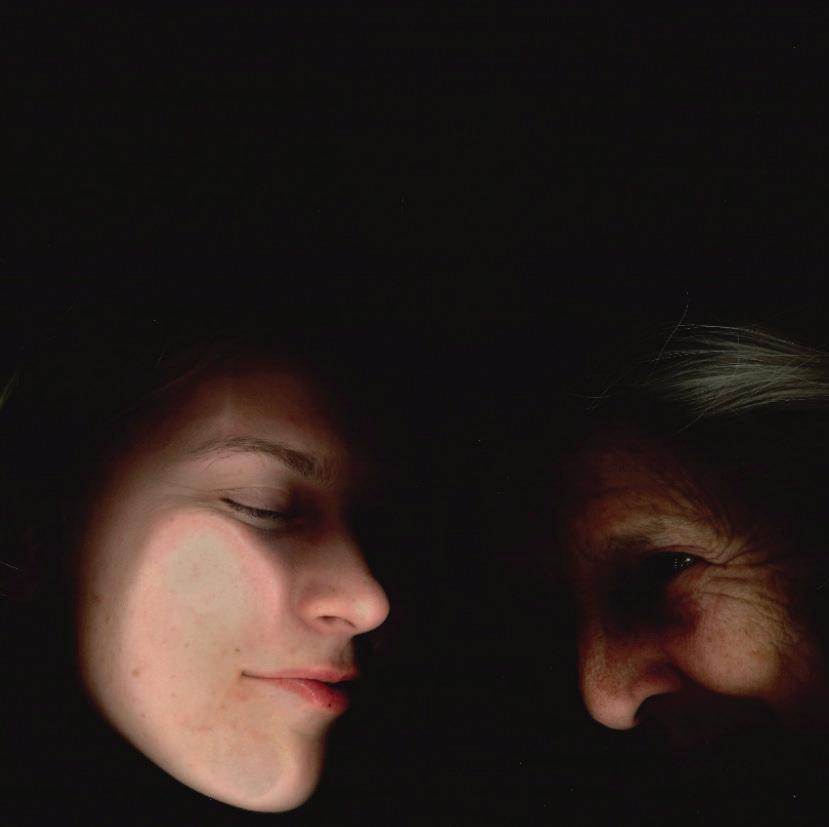










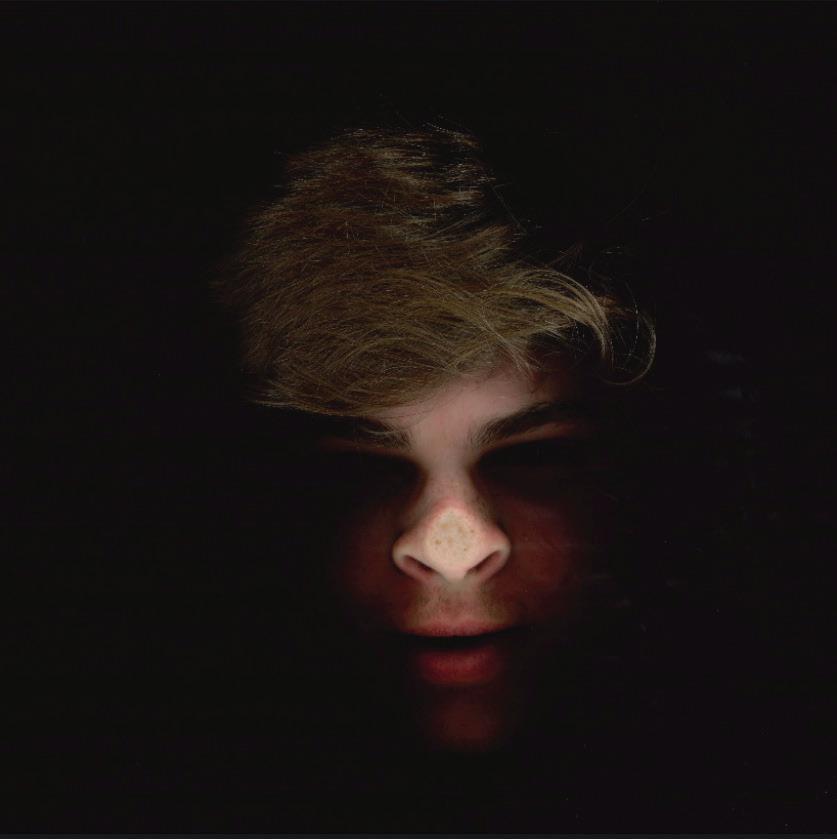





































Forest School

Faces on the cover (from left to right):




by jb carroll

Pop had gray hair, wire rim glasses, and wore a polo tucked into khakis. I was eleven when he passed. Most mornings at my grandparents’ house, Gigi made breakfast. One morning, she was at pilates, so it was just me, Pop, and the dog, Scooter, at home. I’m sure he was already through with his second cup of coffee by the time I rolled out of bed and into the kitchen. He was never much of a cook; he kept it pretty basic. Blueberry oatmeal was his specialty—the only thing I remember him making. That morning, Pop asked me if I wanted to make it with him.
We got out Quaker oats, a pyrex measuring cup to make the oatmeal in, some blueberries from the fridge, the glass jar of brown sugar, and some fine china to eat out of. Then Pop went to work.
minutes. While it cooked, he got out a bacon treat for Scooter, who was getting jealous. When it was done, he stirred it with a big metal spoon, spreading the purply blue color evenly
He added the oats, water, and the blueberries with the experienced hands of an old man who doesn’t really know how to make anything else.
He added the oats, water, and the blueberries with the experienced hands of an old man who doesn’t really know how to make anything else. He let me mix it all up, then he put it in the microwave for three
throughout. He asked me how much I could eat—a lot—and poured some in my bowl. Then he poured the rest into his. He took the brown sugar and dumped a spoonful into his, a spoonful and


a half into mine. I told him it was delicious. He replied, “I know it’s good. Why do you think I never learned to make anything else?”
Gigi was the dinner-party, debutante-ball, Southern-royalty type. She liked the finer things in life. She taught me to play bridge in the vain hope that I might one day be good enough to go to bridge club with her, and visited Paris with my older sister, then me, and later my younger sister. She would cut the tiniest portion for herself out of every dessert, and each year struggled to make the perfect Christmas card with an imperfect family. Despite their differences, she and Pop had a good relationship; they loved each other to the end. Gi tried to polish him, while he gave her a polished life and even enjoyed it himself. But he did it for her, in keeping with one of his favorite sayings: “Happy wife, happy life.” Gi and Pop had two kids, my dad and Aunt T, neither of whom
inherited Gi’s love for high society. My dad went to law school, but he loved working with kids more than he loved money, so he decided to become a school teacher. T did her own thing, too. She tried out blue hair, worked as a doctor on an Indian reservation in Atmore, and went to church in the poor part of Montgomery. Gi, T, and Dad have all outlived Pop by seven years now. My memories of him aren’t clear anymore, but they are happy. I can still recall some moments with him, but not as many as I wish I could. I still have us fishing together at Bubba’s pond, making jigsaw puzzles at the beach, and
I still have us fshing together at Bubba’s pond, making jigsaw puzzles at the beach, and him reading me Tikki-Tikki-Tembo as a young child.
him reading me Tikki-TikkiTembo as a young child. I know I could remember more if someone were to describe them to me, but we didn’t talk about him much after his death. I don’t know why. But I can still see some of the things he left behind. He’s there with my aunt, who loves her dogs like the children she couldn’t have.
He’s there with his wife, who still travels without her best friend. And he’s there with my dad, who likes to make the simple things special. On the rare occasions when my dad fixes dinner, it’s usually red beans and rice. He asks me and my sisters if we “want it gourmet.” Then he gets some Mexican cheese, nutritional yeast, and Tony’s creole seasoning to spice up something simple.
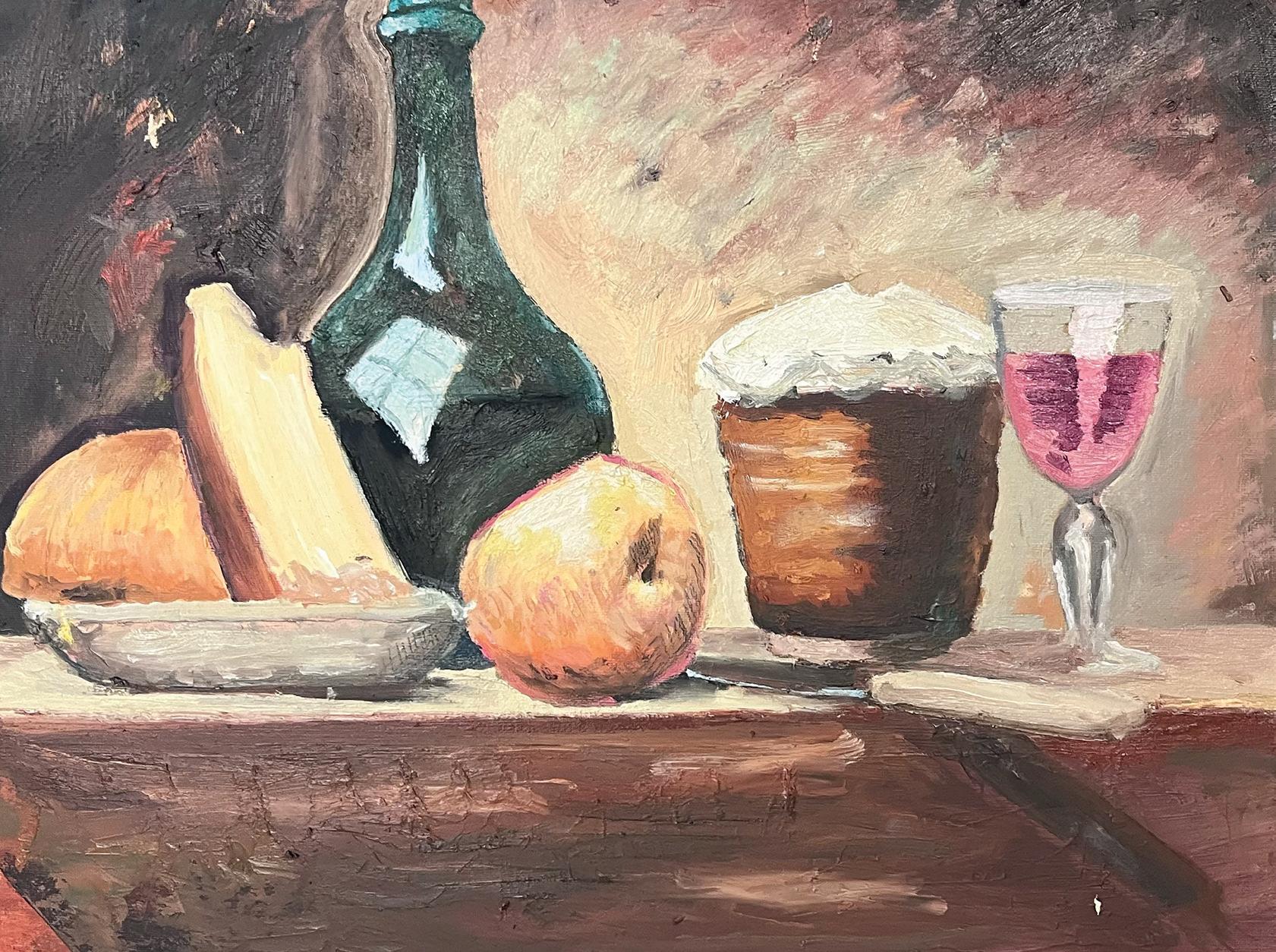
by charles horner

Boys swole with wily wishes for triumph, waving as Te Train goes chufng by.
‘til white eyes wide at whirs and crashes
as screams and gashes turn boys to ashes
gaunt souls gutted now grasp and groan as wilted hands fnger numb like stone
Tus murmurs the Teasing Requiem; fading ‘til the boys go bidding bye.




BangBangGun|BrooksMcCall|oiloncanvas|45x26in.




Back So Soo
by morgan jay

“Why’d you buy his ticket?” Mary Beth asked, even though she knew the answer.
“You know this. Victor asked me—said he needed a change of scenery,” Lawrence told her. “A change of country, really.”
“It’s just too soon,” she said. “And too much money.”
“He’s only staying until he can get back on his feet. Plus, you know we can afford it,” he said, confused why she was suddenly so frugal. They went back to watching the double doors connecting international arrivals to the terminal. Victor was still somewhere inside customs.
But then he was right there—in the middle of the herd of travelers pouring out the door. He elbowed his way over to them and pulled Lawrence into a hug. “You don’t know how glad I am to see you guys!”
“I’m so sorry about Isabella,”
Lawrence stuttered.
“I appreciate it. I do. But she’s at peace,” Victor said as he leaned in to hug Mary Beth. She directed him into an awkward side hug.
“Any trouble with customs? With your papers or anything?” Mary Beth asked.
Victor scrunched his eyebrows and shook his head. “No, no trouble. Isabella was the one with the problem,” he said.
As they left city limits, Victor dozed off, and he didn’t wake up until they turned onto Tanner’s Pass and steered around the muckfilled hole that marked the turn to his old driveway.
“Hey, slow down a sec,” he said. As the house came into view, Lawrence drummed his fingers on the dashboard and glanced at the treehouse, which the new tenant had built. Victor followed his line of sight.
“Who put that in?” he asked.

Several birds were calling a hundred yards off—theirs the only noise until Lawrence said, “Victor, I don’t think we can afford to take you on again. Mary Beth was already pissed about the plane ticket.”
“We’ve got one of Mary Beth’s friends staying there now,” Lawrence said, glancing in her direction. They’d agreed that he’d find out eventually. Victor nodded but didn’t say anything. After dinner, he and Lawrence headed to the back porch. They chatted until it momentarily went quiet. Then Victor said, “I’ll pay you back for my plane ticket, alright? It just might take a few months.” Lawrence told him not to worry. They were in bed early, and by and parked under a tree to eat. When they’d almost finished, Victor said, “Now that I can, I think what I need is to move back. To work with you again, live close by.”
“What do you mean she was pissed?” Victor said. old place.”
“Let’s talk to her together,” Victor said, sliding across the ground toward Lawrence. “I don’t see why we can’t work this out. I mean… my wife died, and I lost this job because ICE got her, and—” His voice was rising, but Lawrence cut him off.
“Alright, alright,” he said. “We can talk to her.” He led the way back, much slower this time, all the while rehearsing what he’d say to Mary Beth. As they pulled into the backyard, he still had no idea what to say.
“You know where the hose is?” Lawrence asked Victor.
“Yeah?”
c
ing to cheat o his ilegal wife?
half past nine the next morning, Lawrence’s four-wheelers groaned and spun up dirt in the backyard as Victor led the way into the hills to eat a packed lunch. In two years, he hadn’t forgotten a trail, a shortcut, or a sharp turn, and he flew up the road at frightening speed.
Over an hour later, they stopped
“She didn’t want me spending that type of money,” Lawrence told him.
“But you all—I mean you’re doing well, no?”
“Well, yeah,” Lawrence said before pausing. “I can try to talk to her, but I really can’t promise anything. She’s already rented your
just too tight.”
Irritated, Lawrence said, “Money’s not tight, and you know it. We booked the trip for Christmas… and we were eyeing that new car for you. We’re doing fine—we’re doing well.” Victor slipped through the doorway.
“I don’t want to intrude. I just want to say my part,” he said.
“Now’s not a good time,” Mary Beth said.
“M.B., please,” he said, his voice sweet, pleading.
“Wash the four-wheelers off. I’m going to talk to her alone first,” Lawrence said. Victor tried to protest, but Lawrence was already walking toward the house. He found Mary Beth in the living room.
“How was it? Where’s Victor?” she asked.
“He’s outside washing off the four-wheelers,” Lawrence said. She hummed approval. “Can we talk for a sec about him coming back to work for us?”
She sat up. “He’s not working for us again,” she said. “Money is
“Stop trying to sweet talk me,” she replied, rage rising in her voice. Lawrence tried to cut in, but she went on, “You know what? I’ll say it: I don’t want him here. Money aside.”
“What?” Lawrence said, and a horrified look flashed across his face. His shoulders tensed.
“Really I never did want him,” she said. “No matter how much he wanted me.”
“What’s that supposed to mean?” Lawrence said. No one answered. Lawrence repeated, “What’s that supposed to mean?”
“Victor would come around while you weren’t here, saying, ‘MB this, MB that,’ I mean—what was I supposed to do? What do you do when your husband’s

Mexican friend is just itching to cheat on his illegal wife?”
She knew she’d said too much. The room was quiet. “What did you do?” Lawrence asked.
Quiet now, she said, “I just filled out a form online.” She paused for a breath or two. “For ICE. I didn’t know what to do.” Victor jumped up, and Lawrence did too. “Enough!” he shouted, and the room settled briefly. “I’m getting him a hotel in town. Get your stuff, Victor.”
It wasn’t long before Mary Beth was sitting on the couch, bathing in her own regret, and Victor was climbing into the passenger seat of Lawrence’s car. The two were silent until they walked up to the desk at reception.
“Two rooms, please,” Lawrence said.
“Two? You’re not going home?” Victor asked. Lawrence shook his head.




had only been getting more radical, trying to take Nick with her. He had raised him right. Christina had done her best to get in the way, but he knew Nick would see the right path.
The ballot sat there, full of eraser marks and with no easy options on it. The easy thing to do would be to lie. Tell both of his parents what they wanted to hear, but he knew them too well for that. The first thing they would do would be to go rub it in the other’s face. Show
frown on his face. Walking toward the exit, he envisioned their reactions when he told them about his choice. Both of them would be watching the door intently, waiting to gloat at the other. It hadn’t been easy, but he had come to a decision. The only thing left was how to break it to them. He wasn’t pleased with his choice. He didn’t have much of an interest in politics and disagreed with a lot of what both his parents tried to tell him.

His mom stands outside the town hall, working with some friends from the local democratic ofce, passing out info packets.
Their state was going blue either way. There’s no way she raised her son to be a Republican, she thinks. She had done a better job than that. She shoots a quick glance over to Brad, standing over with one of his golfing buddies. She scowls.
“He always had time for golf,” she thinks. His idea of priorities had never aligned with hers. His house across the street loomed over the occasion, the bright red sign in the front yard, his girlfriend’s Jeep in the driveway. She hoped his dumb ideas hadn’t poisoned by colin neary
Nick’s mind.
Brad watches intently, waiting for Nick to come out. His son will make the right choice, the only damn logical one if you really looked at it. Why Christina couldn’t see that, he would never understand. Since the divorce she
His Dad made it seem the only thing he needed to be successful in life was a big mouth and an even bigger drive.
that they were the better parent, the one who had more influence over him. He hated it, their endless competition with each other to prove they had the better plan for him. Sometimes both of them sounded very dumb to him. Like right now, the way they cared about this like it was life or death. Either way he would disappoint one of them, something he hated but was often inevitable.
He exited the booth, with a
She noticed him now and began to walk toward him. This alerted his dad, and he closed the distance as well. Before they could reach him they had already erupted, Christina yelling at Brad for his dumb yard signs, Brad scattering the blue pamphlets Christina held in her hands. An even worse situation than Nick had thought. He had reached them now and tried to get a word in, tell them about his decision. Nothing. He brushed between their locked horns and headed for the car.
The doors slammed behind him as he exited. He saw his Dad first, over on the right with his dumb golfing buddy. It seemed all he ever did was golf; it made him question the merit of going to college and working. His Dad made it seem the only thing he needed to be successful in life was a big mouth and an even bigger drive. Then he looked to his left and saw his mom pacing. He hated how nervous she got, as if his vote even mattered.

Greaves settled on caked mud. They broke the hard surface and sank an inch into the viscous stuff. His horse brayed. With his right hand, he pulled a sword from his sheath, but he was so weak. The steel dropped to his side and fell in the mud. He bent over to pick it up, fumbled for the hilt, and pulled it up by his side, groaning—such a small exertion for such a toll—and he saw a dead tree across the pool. It was a braid of wood: two trunks entwined. A single crow perched, fat and gross. It spread its wings and flew by, brushing the knight’s helmet—and the knight toppled over, his face landing in the mud. The knight’s left hand unclasped, and a single cup rolled out into the depression the knight’s body had made in the mud, and the cup was filled.
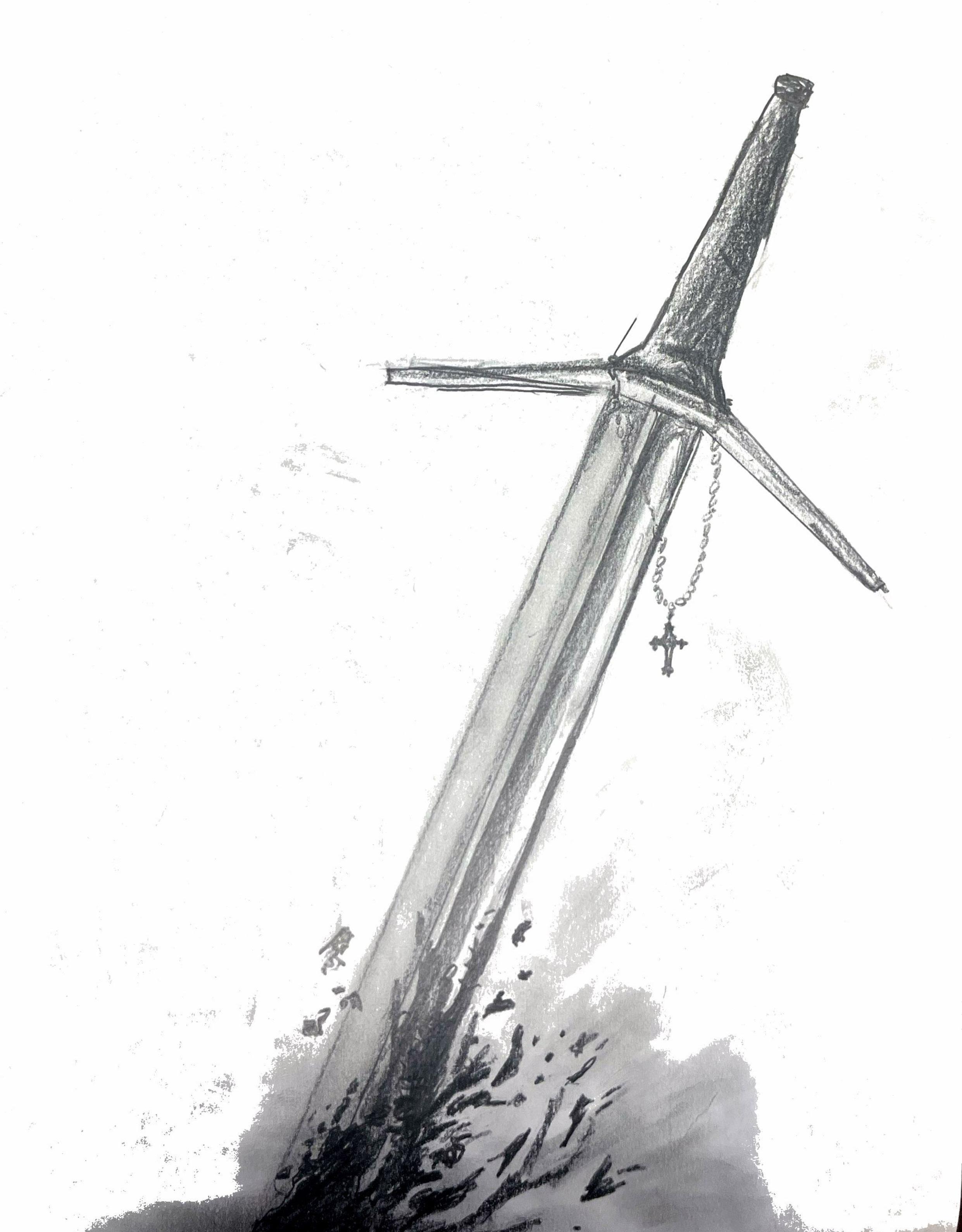
by ralph wear

I, alone, entreat thee, O’ Lord.
I struggle, because often I feel the universe is up to chance.
Life eternal everlasting, everlasting eternal Life.
On opposite ends of the world, God the sky, and then again, the earth.
God in the second tallest pipe of the organ’s smallest set; Give way to the Lord in ditch and mire.
All God in one fesh, or one fesh in All God?
He struggled? Because the universe is up to chance. Solitary, I beg. Amen.


Trough futtering, fltering blinds shadows drape a dizzying, narrowed hall, worn by ill-born hopelessness.
Waste away in sheets of yellow, O’ sleeping king, and rot with wind that blows fabric-trimmed walls.
Your life, a stream born of feeting snow a breath in a hurricane or your favorite grain of glittering sand, cannot be held past her molting.
Her wings will sprout like buds in spring and fy of– despite those prying, purifying curtains–spinning, spiraling into the breeze, and march on, untouched by your hopelessness.
Bathed in radiant, merry golds, with wildfres that provide the lord his crown, Life goes, regardless of where you spend it.



by danny van clief

As the tires of William’s car tread over the dirt driveway, he considered his life. He was terrified. He wondered what it meant to kill a man. He tried so hard to justify it, but it was impossible. He knew he should do it—that it was right—but why?
The Bible said he shouldn’t kill, but he wanted to. He wanted to because it would spare him from knowing that this man hurt people and he did nothing— so maybe he was just tired of being a coward. The car stopped and its engine rattled. The lights dimmed. William got out, opened the trunk, and grabbed the gun. He approached the house, which was just like every other house around those parts: old. Half of the front porch had rotted away. He walked up the front steps and glanced through the windows; and only one was illuminated. He opened the door, stepped inside, and crept
up the staircase. He thought about rigor mortis and the police. He reached the upstairs hallway—where that one light was. And there, at the end of the hall, stood Jack. They both froze. Paint stripped itself from the walls. Dirt tinted the windows a
leg to his right. The floorboards squealed. All the while, Jack’s face didn’t have a single fold in it.
William asked:
“Aren’t you scared?”
Jack’s face still did not change.
“Ain’t you?”
Jack’s voice was fabric—at ease

dingy brown. Motes of dust flitted about, lit by the single bulb in the middle of the hallway. William’s gaze bolted to Jack’s face. William lifted the double-barrel shotgun from his waist. He leveled it at Jack’s torso. His hand clasped and unclasped the foregrip. He was sweating. The old thing rattled in his hands: the wood furniture was barely joined to the metal. William shifted his weight from his left and comforting. It brushed into William’s ears. It was nothing like his own voice, gravelly and hoarse. William had heard that the eyes are the window to the soul. William searched Jack’s. There was nothing—but there were two rings of color, he noticed: one blue, one green. That scared him even more… It was odd enough that he was trying to find solace in the man he was going to kill.
William kept moving the gun in his hands. As if that would have made him any more comfortable. He never responded to Jack’s question. Instead, he concentrated on his grip. He held the gun still and pulled both triggers at the same time. A bassy thud left the barrels and drubbed into Jack’s stomach and chest. The flash turned the windows yellow and made the dust panic. Jack fell far more gracefully than he should have. Blood fled his body.
William broke the gun, cleared out the two spent shells, pocketed them, and propped the gun against the wall. He stepped toward Jack’s body, squatted down, and looked into his eyes. Where there was calm, now there was nothing. William stood back up, turned, and went down the stairs, through the screen door, and back to his car.
His father was dead. He’d killed him. So he sat in the car in shock. He felt around in the cupholder for something to chew on: gum. He chewed and started to shake a little. After a good twenty minutes, he took the car out of park and began the drive down the mile-long driveway, winding
He drove for the entire night. By the time he reached New Orleans, the sun had come up. It caked the skyline in a heavy orange and William was no less scared than he was a night ago.


by colin neary

Blood dripped off its scales, as the cold water rushed over my feet and then the wounds.
I assumed it had taken a wrong turn trying to get out to the river. Perhaps it had been chasing a crawfish. I knew this water could not be good for it. Directly beneath a big road, the creek was sure to be full of runoff. I often had to clean off as soon as I got home.
I ran my hand along the back of the wounded creature. It really was beautiful. Yellow and brown marbled its skin. Its long torso, so strong and taught, had stopped writhing now, as if it had accepted its fate. Its gills were pretty cut up, leaking blood out into the water. Nothing around, just bamboo walling us in and the bridge farther upstream. There seemed to be no hope for the fish. I unclipped my knife and studied it. It wasn’t that hard when it was a little sunfish
or crawfish. Something about this fish was too majestic to go out like this, washed up on the rocks in some shitty little creek.
I remembered that deer, breathing heavily on the side of the road. The doe was knocked, eyes wide open yet glassy. But my father just examined the windshield of his Tacoma. Even though the collision had probably broken just about every bone in her body. Rain ran down her sides and into the blood pooling around her. I reached down to feel her breathing. My father barked at me not to touch the thing. He popped open the glovebox, grabbed his Leatherman, unflipped the blade, and walked toward her, muttering something about that being the one day he didn’t bring his gun. Nothing else was said. I stepped
back from the deer, still looking into her eyes as the thought of motherless fawns flashed through my head. I hopped back into shotgun, covering my rainy eyes with my sweater.
The rest of the ride was silent. Just the patter of drops on a cracked windshield.
The fish looked the same to me, sitting there, helpless. It didn’t deserve to die. Not like that. This time, I had to prove something— to myself but more so to my father. Water ran over my feet and the cold started to creep up my legs. I didn’t have all day. Neither did the fish. It didn’t deserve to suffer. But who was I to take away its life?
Then I finally understood. No hope, no future. Just pain. My fingers steadied around the knife and I leaned in. The blade went in clean.









In the fall of 2024, the Woodberry Tigers had an undefeated football season, which last happened in the year 2000. Afer the 126th Woodberry season, editors Ethan Chang and Brooks McCall interviewed head coach Jackson Matteo, defensive coordinator Duke Sherrell, and WFSPN announcer Greg Jacobs about the season. We wondered what made this year special, what went on behind the scenes, and how this season compared to the undefeated season in 2000.



Q: As a spectator, why do you think this year was an undefeated season?
Greg Jacobs: I broadcast six of the nine games, and I got the sense of great comroderarie, love for one another, and playing not for one’s self, but for the time. I’ve been a football coach and involved with many teams, but you can tell when someone is playing for their own glory or for the team. You can tell that Jackson Matteo and his staf know their stuf. I saw some practices where they were having a great time in a professional way. I could tell that the whole team was having fun by working hard.
Q: I know that the Woodberry Forest team 126 defense had an amazing performance this year. While the Woodberry ofense scored a total of 234 points, the defense only allowed 75 points for all eight games. What was the key success for this stonewall defense?
Duke Sherrell: Tis year, we had a really good balance of guys who were willing to do the dirty work, who were willing to sacrifce for their teammates, and who were committed to playing a really good brand of defense.

Q: When the fans come to the feld to watch a football game, all they see are tackles, interceptions, and sacks. What are the things that the normal fan does not see?
Duke Sherrell: We could start in the weight room. Football is a physical sport. Guys have to be physically prepared to play it. A lot of the guys were dedicated throughout the summer and of-season, changing their bodies to be bigger, stronger, and faster. Tat all happens when nobody is looking. I think that practices were intense. Tey were not easy practices. We’re doing pursuit drills every single week. Doing rabbit pursuit drills, tracking circuits. We are doing all these things to prepare for our opponents, and people don’t see that. Our defense, this whole year, Mondays through Fridays, had nightly flm sessions. Guys would go into study hall, and after they were done, they would transition over to Edwards Lecture Hall. We watched 20 to 30 minutes of flm. Tose guys are sacrifcing their free time at the end of the night. Tat’s why they were able to make those plays. It is just a testament to their will to sacrifce for over a month to have their success on the feld.
Q: We know that you were here the last time Woodberry had an undefeated season in the year 2000. What are the similarities between the two seasons?
Greg Jacobs: Honestly, they aren’t that similar at all. We are a very diferent school now than we were in 2000. Tat was my frst year at Woodberry and I had not been a football coach at that point, so I didn’t have an understanding of what was happening strategically and how the team was relating to each other. I didn’t understand that stuf as well, but I did understand the size and talent-gap between us and the teams we played. Did you know we kicked 48 extra points in nine games. If you average that out, it’s fve to six touchdowns per game. I could not have imagined that season working out the way that it did because I didn’t think about going undefeated or even winning games as much as I thought about what every single day looked like and how we maximized our time.
Q: As football analyst, how likely is an undefeated season to occur again next year?
GJ: Tat’s impossible to say. I always trust Jackson Matteo and his coaching staf. But an undefeated season is as much luck as skill. Yes, you have to be a good team to go undefeated, but football is a funny game, played with an oblong ball. If you were to throw the ball up into the air, you never know which way it’ll bounce. A single play could change the entire trajectory of a season.

“My biggest emphasis physically was conditioning and the three core tenets of developing a strong athlete. Which are your bench, squat, and clean. Te bench: How you can get force from your chest and your back? Te squat: What does your lower body look like? How strong is your posterior chain? Te clean: How can you generate force from the ground and get max output above your waistline?” - Jackson Matteo

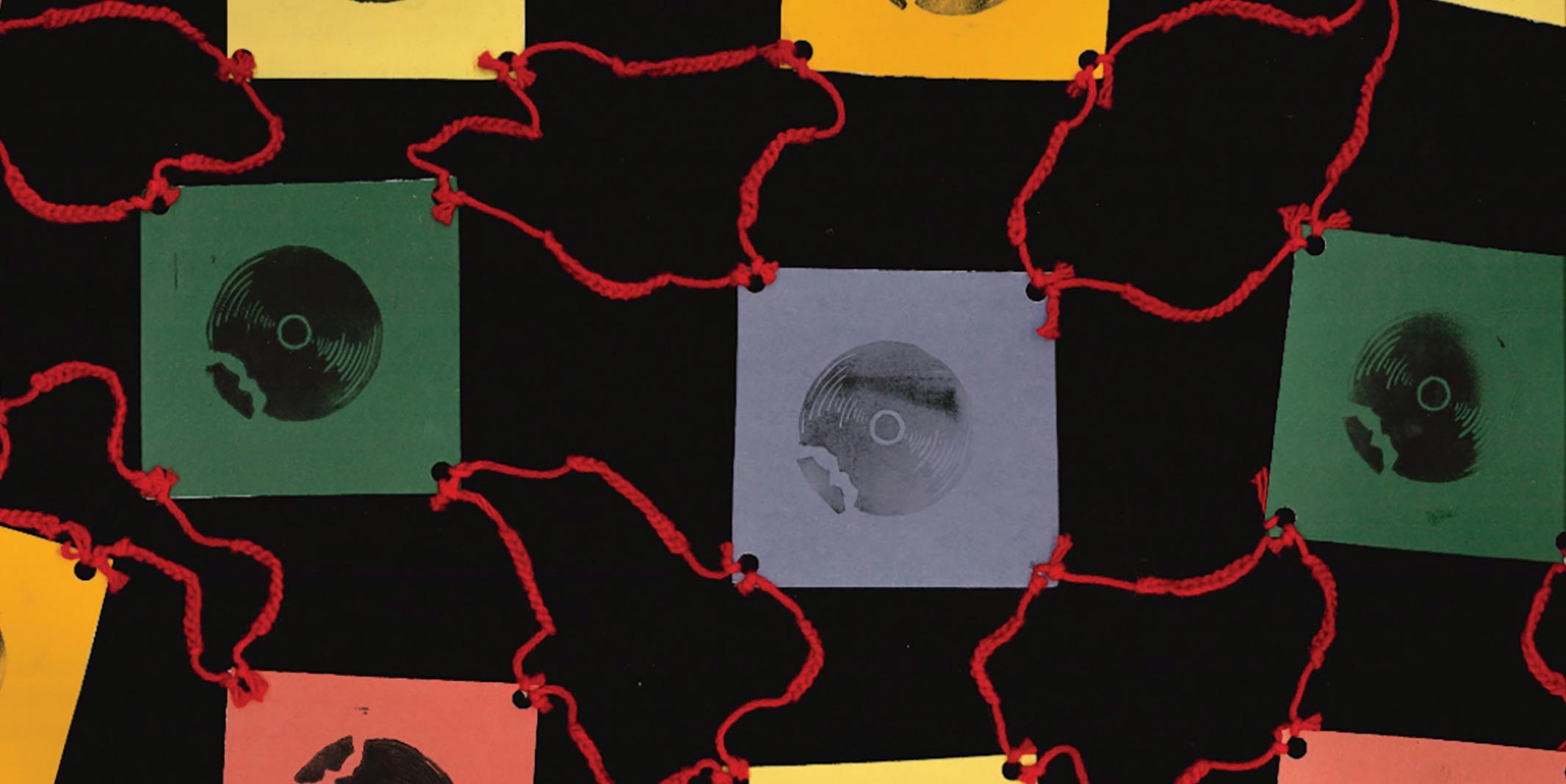

by ralph wear
It had only been a minute since the President sat down at the head of his Grand Table. His well-groomed nails drummed the setting, and his eyes, which may once have been handsome, could only watch them drum away. The long room crackled with a hundred candles, placed in such a meticulously haphazard way that the cook had not known whether her employer was a lunatic or a fanatic. He closed his eyes on the room, the table, his hands. He could not bear to see any of it now. Even the food in front of him seemed to mock him.
And oh, the steak was burnt! He could not bring himself to fault the poor cook. She hadn’t known. But the President had. He prayed, begged, and bartered with whatever being existed that could protect her, as he ordered the girl away. “Quickly, quickly,” he had said, as he rushed her through the front
door of the brilliant white house onto the cold, brick pathways that stretched beyond it. He ordered her, “Go!” He hoped she had. His Guest was nearly here, and he didn’t like being observed.

Disgust and horror. That was it, all over the President’s face when he’d seen her work.
He’d muttered, “It’s burnt, it’s burnt…” but the steak was practically dripping blood! She’d tried to apologize, but all he’d done was stare. Like she’d shot his puppy. Then, he’d thrown her out, and she still didn’t know what to make of it. Was it over? Should she return?
The young cook was too angry to think. As she walked quietly in the growing darkness of early evening, the sun still lazing on the Potomac, Lucy cursed him. Raving lunatic, that’s all he
was, and they expected him to run this country? She wouldn’t trust the bumbling old man to walk down the steps. It couldn’t end like this, not even half a year into her work. As she paced before the security checkpoint, Lucy felt she stood at a precipice. The guards smiled at her, but surely that was because the President’s outburst hadn’t reached them yet. But it would, and when it
did, those gates would close on her forever. There was no doubt in her mind: going any further would mean no chance for repentance. But there was time. The President wanted a raw steak? Sure. It didn’t matter if he was senile, she would get him his damn bloody steak, with a smile this time! The job was just as much about satisfying the ego as it was the palate, after all. Emboldened,



His mouth opened, and she watched rage flush his face as he prepared a screaming order, a tendril of smoke descended from the clouds like a hurled spear into the front lawn, blowing the doors open. From the fog outside, there was no sound save the click of boots on stonework. Her Commander-in-Chief froze, barely squeaking out, “Hide” before righting himself in the chair. But Lucy didn’t need to be told; she scurried for the service counter and practically dove behind it before the figure emerged from the vapors.
The man, the Guest, entered in silence. Not like forgetting to breathe in anticipation, but silence as if the whole room was choking, rasping for breath. Lucy certainly was, but that didn’t stop her from peeking out through an arrangement of orchids. And to say he entered would be untruthful. The thousand flickering candles were out immediately as the smoky-man burst through those front double doors, and a chair scraped on the old hardwood. It was a terrible scraping, a sound that hissed throughout the too-quiet, too-dark room and made the eavesdropper cringe.
The firelights returned, but slowly, pulled towards the strange shadowy figure across the expanse. But he allowed them to slither back to existence.
The President hazarded a glance up at his guest, at his hazy outline amid the dancing tongues of fire, and together, the mortals beheld him. Even from the shadows, Lucy saw those perfect ivory hands and the golden timepiece that encircled his left wrist. The hands clasped each other, fingers interlacing as he propped his she waved back to the guards before spinning on her heels and marching back up the long-paved path to the front door. But the closer she got to the door, the heavier the air became. Out of nowhere, clouds rolled in and smothered the lounging sun. It was unsettling, but she was used to the coastal storms that came and went at the drop of a hat. As she unlocked the door and slunk into the room, she was blinded by the light of a thousand candles. She saw the gaunt face of the President staring back at her in horror.
arms on the table. His dark suit, possibly a deep redpurple in the daytime, blended with the candlelight and melted into their shadows. His face, just as unmarred and clean as the rest of his form, was rimmed by a slight, golden beard that accented its otherworldly beauty. Sharp, powerful, full, as though crafted personally by the loving hand of some higher power. He sat forward like a serpent ready to strike, eyes shrouded by the shadow of his tall hat. In that moment, as these two giants stared at each other, Lucy was infinitesimally small.
The Guest checked the time, still silent, before he sat back into the darkness of his chair and became a silhouette again. The guest’s hands fell to the utensils on either side, and, without words, the meal began. The President cleared his throat, straightened his tie, and followed suit. Lucy forgot herself as anticipation gripped her. She felt like nothing but a shadow before these two; and as the President squirmed, she only wondered what this Guest would say. There were moments of quiet
consumption then, just long enough that the eavesdropper foolishly thought there would be no words at this dinner before a question broke the tensioned dark. The Guest dropped his fork on the plate.
“Who was it, that ruined this steak?”
The President looked up, the clinking sound of utensils clearly startling his old ears. His Guest’s voice fell like faraway thunder over the silent room. His leering smile cut through the dark like the silvery knife he held in that left hand. He spun it, deftly, then balanced the bladetip on his finger as he waited for a response from his host. He spoke like an old friend, as though he were fishing for a laugh, a tone that made the President recoil.
“You should have them killed for this crime, Thomas.”



Lucy nearly fell backward as her heart jumped to her throat and remained there, beating with enough force to lead a march. The silence that hung there only made it worse, as the President did not respond right away. He simply picked up his knife again. He allowed his hands to wrap the familiar handle before shakily carving through the carcass he had given himself. When at last he held up a piece of that dripping, bloody meat with his fork, the Commander-inChief replied.
“She is just inexperienced. It won’t happen again if you show mer—” the President’s frail voice tumbled into the room, and he tried a chuckle to break this tension; but immediately, that icy cold gaze was upon him, burning into his soul. The Guest did not need to reveal his eyes to silence his host. What would his Guest do, wondered the President, if he knew the chef was with them now? He once more cleared his throat, shifting ever so slightly to escape that constricting, unblinking vigil. “I apologize. May I please continue, sir?”
Satisfied with this response,
the Guest broke off, and the President let out a staggered breath. It was now Lucy realized she needed to breathe as well; and cowering behind the counter, she heard the voice of the Guest strike again.
“Yes. But speak quickly, Thomas, I am displeased with this meeting.”
Lucy had to get out. She had become witness to something no eyes ever should. It didn’t matter who the Guest was or what the President wanted. She would plead with him later, after this dinner from hell was over. For now, she began to crawl towards the service stairs as slowly as she could. As much as she wanted no part in this, she couldn’t help but overhear the conversation beside her.
“I… I need more time. Again.”
There was another pause, followed by a dry, hollow sound.
A low rumble that slowly grew until it was clear that it was the Guest’s laughter. The young cook heard wood split as silver struck it, and the chair scraped once more. The Guest was out of breath and still laughing, but he thundered on.
“MORE TIME? Oh! More time!
Thomas, you’re rich! What makes you think that I would possibly give you—”
Only a few feet now… Lucy scrambled for the basement stairs, the boards shuddering as she pushed open the door. Home free—
now. As the lights flashed in his old, old eyes, and the crowd thundered as loudly as the horns and woodwinds, the Commander-inChief took the stage. He strode to the podium, confident, wise, and without fear in his face or voice as he spoke.
“My fellow Americans… I stand here today—”
The door behind him shuddered, and the President’s eyes dropped to his plate. He felt the Guest’s gaze burn his brow once more. They were doomed. The pair of them, mortals before this primal hunger. The Guest began to stalk around the table, his fangs baring as the Commanderin-Chief shook. Yet, as grief set in and he began to make terms with his life, a ray of light broke through his clouded mind. Weakly, his voice choking on itself, he spoke.
“I offer you the chef.”
The President would always remember her scream. Maybe not her face… No, he guessed her face would fade away as his years rolled on. But the scream she’d made, filled with more passion and emotion than his last decade, stuck with him even
No sense in shame anymore, Thomas. We all have our parts to play…
“...to announce my intention to run once more, for President of the United States.”
He’d won already. One future for another, hers for his own.




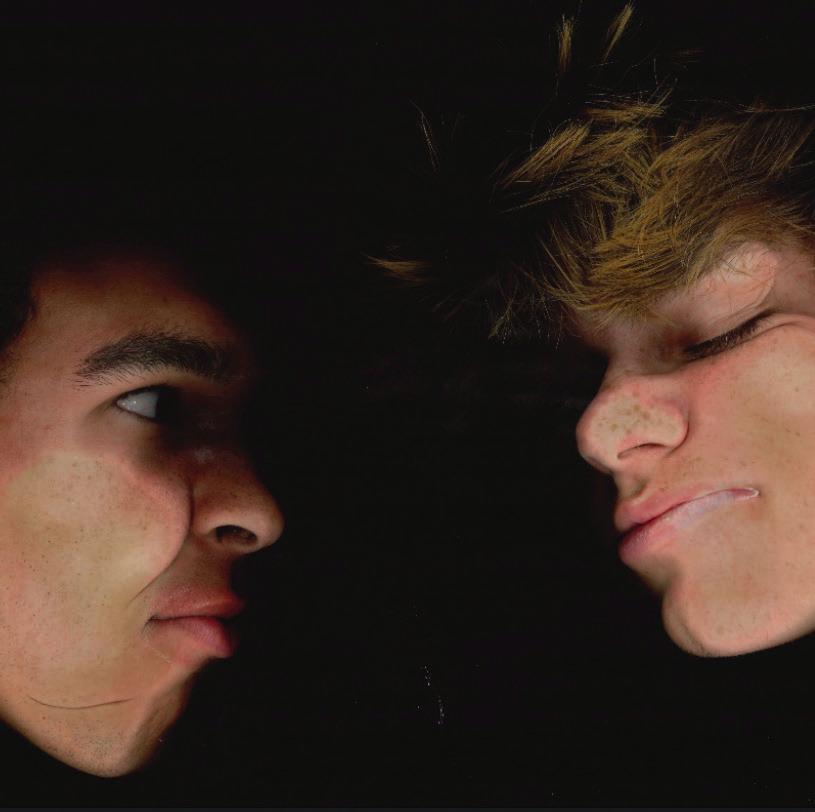





























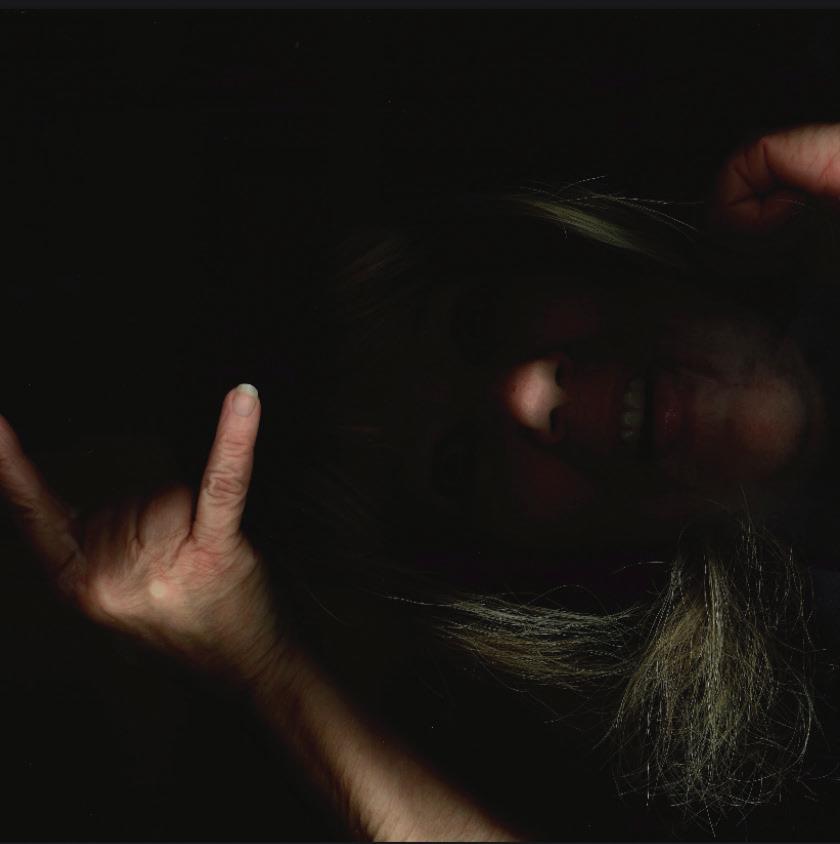

Faces on the previous page (from lef to right):
First row: Hunter Helmick and Everett Jones, Sam Gillespie, Charlie Gillespie, Max Cole, Matt Blundin and Amy Blundin, Everett Jones, Fiona Tanne, Laurie St. Clair and George Van Cleif
Second row: Jay Bhimjiani, Phoebe Warmack, Liam Carpenter, Sam Benson, Penn St. Clair, Laurie St. Clair, JD Cavaleri, Henry Fanning
Tird row: Logan Brodhead, Wendy Allen, Ben Hale, Saif Naber, John Watson and Colin Neary, Tommy McMillan, Brooks McCall, Lynn Bache
Fourth row: Perry Gresham, Wyatt Shropshire, Teniyah Randolph, Matthew Keating, Anthony Lee, Taylor Tucker, Gavin Helmick, Hunter Helmick



by ralph wear
I make for them my masterpiece;
“It matters not,” they claim. I wrote for thee a symphony; Its notes weren’t entertained.
I struggle fght and scream and bite Against the Argos glares. Yet, no matter what I write My thoughts aren’t in their cares!
So what, I ask, am I to do But feed them excrement?
Of all I’ve made, and all I will, Tey only want the shit.

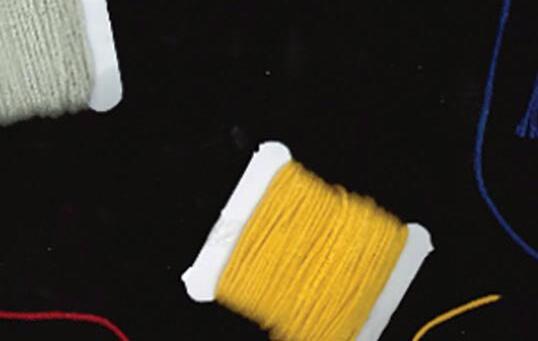

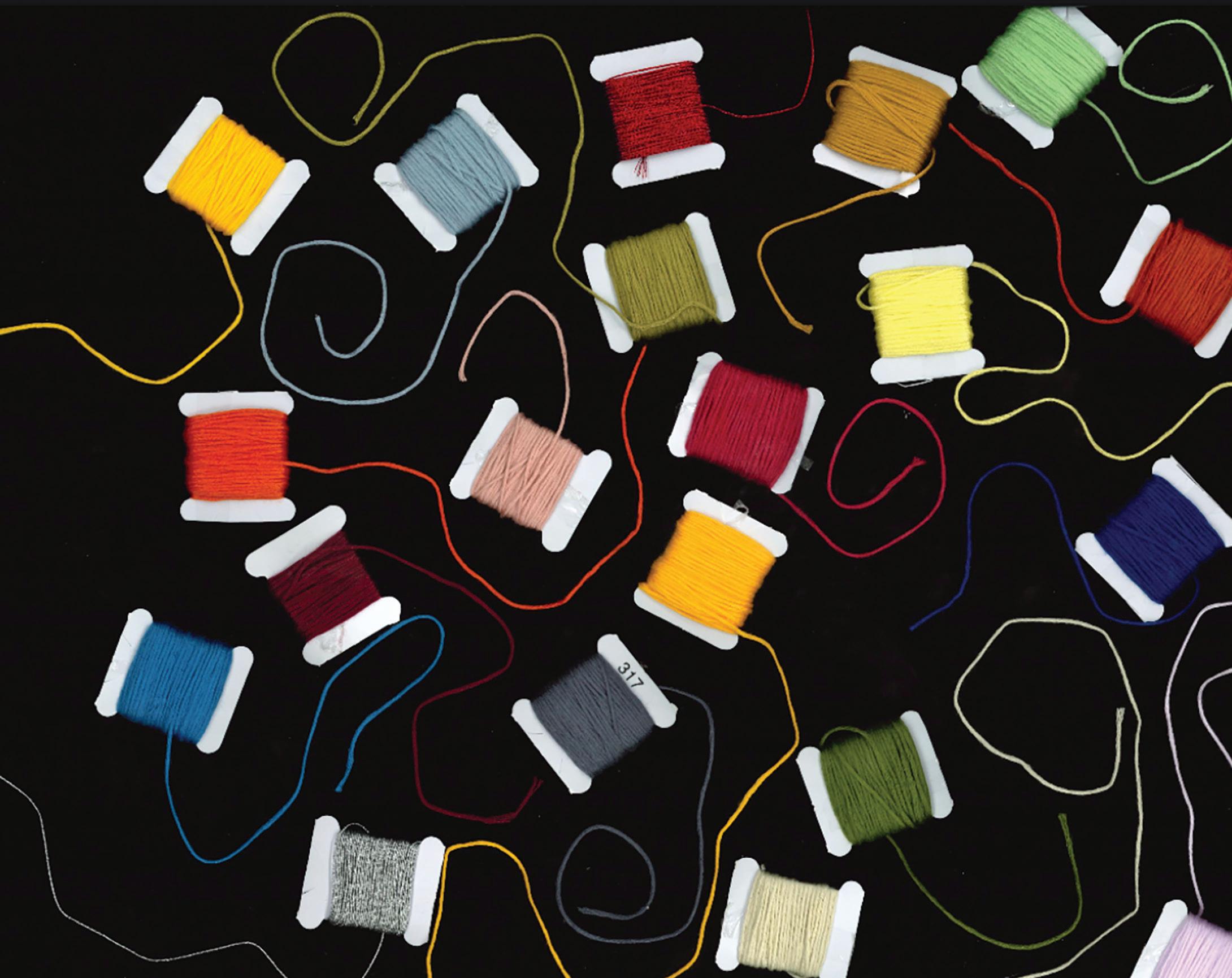
by ralph wear
Try as I may and will as I might, I couldn't just "think up" a poem to write, all willy and nilly, creative and free... like this assignment demands me to be.
So here's a few rhymes, none worthy of dimes, for my mind is not yours to tap. Tis faucet won't fow, if you just tell me "Go!" I need more interest than that.
A poem should bend and meander— like a river, that roars ancient grandeur— It should question and sing, like the new birds in spring, not be forced to the page on command, Sir.






8:43- 9:43 pm, my room by ralph wear

Silent snow outside ease into calm, my Heart, and sit, neath my bed.


by tad shores

I squinted. Nothing. I couldn’t get that damn glare off my screen. I hunched over like an umbrella and pulled my phone up to my face. A little slanted, but it sufficed. I got the photo I wanted anyway. Hollow buildings and vacant alleyways, only filled with cigarette smoke and idleness. Old Havana.
I zoomed in on the billboard.
I made out the words “¡Patria o
Muerte, Venceremos!” Homeland or Death, We Will Triumph! I scoffed. This didn’t look much like triumph to me. When I pulled my phone from my face, I noticed some tiny shoes out the corner of my eye. I turned and saw some old woman, not even five feet tall. Her skin was like a raisin. Her dyed hair popped against her red t-shirt. And the ends of her smile stretched from eye to eye.
My teacher asked if she needed anything.
“Sácame… una… foto.” Take… a… picture… of… us.
much to say. My teacher checked his watch: it was time to leave. And so we left the lady behind. But we didn’t get very far when we heard that same moaning voice: “¿Tienes dinero?” Do you have money?
“No,” I lied. Instinctively. My friend did the same.
I
sure didn’t see what they saw and wasn’t going to force myself to. I wouldn’t go near these desamparados for the rest of the trip—unless I really had to.
until this couple tried to reach into our pockets.
Her voice cracked with forced volume. She then pointed at me and my friend Evan, standing by me, and slowly repeated herself one word at a time.
With a little skepticism, I put my arm around her and smiled for the photo—as a good tourist would do. To my surprise, her smile didn’t fade. Maybe their culture of camaraderie actually did make them proud of their homeland. And maybe she just wanted to share it.
“¡Qué bonita!” How beautiful! My teacher said as he showed us the photo.
“Muchas gracias.” Thank you very much, she replied. We exchanged names, and that was it. She really didn’t have shores
But as we walked away, she doubled down: “¡Espera!” Wait! We didn’t hesitate or look back. There was no point.
Why would we wait? These Cubans weren’t proud, not even honest. They just wanted my money.
Before I came to Cuba, I’d heard a lot. Good and bad. But I had never heard anyone talk badly about the people. In fact, many people had said that they were kind. Didn’t they see all these pesky beggars? Couldn’t they see the dishonesty behind those smiles? Regardless, I sure didn’t see what they saw and wasn’t going to force myself to. I wouldn’t go near these desamparados for the rest of the trip—unless I really had to.
The next day, I closed my ears to all those pleading holas. And it worked. No one asked me for a dollar, or even some Cuban Pesos.
After getting a cup of coffee on the way back to the hotel, I slipped on my running shoes and joined my friends Wylly and Morgan, who were already stretching on the malécon, the crumbling stone boardwalk that lined the rocky shore. We ran down the malecón and ran past the Cubans who I assumed just wanted our money until we took a second to catch our breath, choking on the wind and the smell of sewage water. And then we heard a nearby couple shout in their broken English, “Where are yous from?”
Nope. Not again. But before I could tell Morgan and Wylly to leave, they spoke up: “Los Estados Unidos.”
They approached the couple, and I followed. I had no other choice. Maybe if they had been with me the day before, they wouldn’t have gotten mixed up with these Cubans. But they did. And now, all I could do was wait
I looked the couple up and down. I pinned them at about thirty-five, but some gray hairs were already beginning to peek out. He wore a linen shirt and long khaki shorts. She wore leggings and a zip-up sweater. Their skin wore a darker leather than the woman from the day before, but their long smiles looked uncannily similar. I nudged Wylly, but his feet stayed glued to the muck of the malecón. Then, my friend changed the whole mood with the one question that we weren’t supposed to ask.
“¿Ustedes confían en el gobierno?” Do you trust the government?
I waited for a plain “Sí,” or a guarded “No.” But what they said was pretty political—but not how we see politics. To them, the American embargo on Cuban goods was an embargo on
their lives, their children’s lives. Why they couldn’t buy milk for their children. To them, the bankruptcy, corruption, and utter dysfunction of their government wasn’t just something out of a textbook; it was the reason they were stuck on the malécon—why he couldn’t paint any of the dilapidated buildings across the street, why she couldn’t couldn’t

They thanked us and we bid them farewell.
As we retraced our steps along the malécon, my stomach panged at the thought of the raisin-looking lady. What if I had waited? What if I had heard her out? Maybe her grandchildren would’ve been a little less hungry, her life a little less desperate. Who knows.
Te bankruptcy, corruption, and utter dysfunction of their government wasn’t just something out of a textbook; it was the reason they were stuck on the malécon.
pursue her passion for dancing. Our ‘politics’ was their reality, a palpable force that just kept dragging them down. Once we had run out of questions, they asked one of their own: “Tienes dinero?” Do you have money?
This time, I didn’t lie. I didn’t turn my back to her. I reached for my pockets. Empty. I turned to Morgan. No dice. But, to my relief, Wylly pulled out his wallet and gave them a twenty dollar bill—all that he had on him.

by
ethan chang and ralph wear
Bored, in the nursery
Surrounded by small growth, My eye is caught–Bonsai.
Dark shade of cyan, with hints of green, thick as my fst.
Te barkest bark like dry skin on a lizard, color of freshly roasted cofee beans.
It snakes right then left, before fnally standing straight, a cobra, with four green clouds to crown her.
Before this tiny tree, I am miniscule. Mesmerized, a sailor rapt by siren-call, I play under its boughs.
In the rain, the aroma of wood tickles my nose. A drop wakes me.



place stamp here











by noah rabil
Just yesterday, I drove by my old house For the frst time in months.
A new family
Stood next to my open front door.
A black sprinter van Sat in my parking spot, Filled with boxes and bins, A team license plate from Baltimore.
I imagined their stuf Orioles fag or a sofa, A red Persian rug like my grandparents had, For covering the Red Oak wood foor.
A boy reached down into a bin Setting pool foaties aside, Grabbing a Ziploc of sidewalk chalk For sunshine days when he gets bored.
I hope he loves the space as I did; A chip in the counter And marker-lines on the walls, I guess it isn’t mine anymore.

by ralph wear
Lurking dark within his lair,
Treasure great for those who dare.
But a terrible beast, great in size
Rivals the tremendous prize.
Fools are you who charge below
To face that mighty, nasty foe. When you fall before his guards, Gain inspiration from the Bard.


When bloody and beaten you stagger on, Cleric’s holy word makes pain all gone. While traps would kill a normal man, your Rogue laughs as he leads the band.

And when at last your foe’s in sight, He’s no match for a Fighter’s might. So Dungeoneering on you go, In search of treasure deep below.





Running By by charles horner

Once I ran Past snickering creeks
‘Mongst tickled trees By lapping breeze, And the air was ripe for Breathing.
And so I went With lightfoot steps, Greeting black cows to and fro, All bathed beneath that noontime glow Tat makes the days worth Living.
As I relished my calm, meand’ring pace
My cheekbones sored my smiling face And that verdant sway ‘mongst Cobbled gray, said nature’s Ever-giving.
what it takes to put on a woodberry production
An Interview by Brooks McCall With Laura Aylor, Dk Kim, and Michael Johnson
Brooks: Having directed your production now, how was doing a musical different from your past two plays?
Laura: So much more goes into a musical. I've always had a team of people, but now I'm responsible not just for directing and acting, but singing and dancing also. The biggest difference was trying to allocate enough time to each. Especially with the winter schedule, where we have massive breaks between rehearsals. Trying to get everybody in the same place at the same time, especially our leads, was diffcult. Shrek had to be in three different places on any given day.
Brooks: Do you see yourself doing more musicals in the future?
Laura: I’d like to. This has been our frst musical after a sixyear hiatus. Now that we’ve gotten our frst one out of the way, we’ve defnitely gotten our footing again.
Brooks: What aspect of the show did you not expect?
Laura: Probably all the technical stuff going on. We rented some really awesome puppets for this. On a technical level all the scenery, costumes, and puppets, for sure, make this show a spectacle. Particularly the dragon. She’s huge.
Brooks: What has been
your favorite part of the directorial process?
Laura: It's got to be working with the cast. It really takes a village to put on a show like this, and seeing the same faces everyday is the best part. It's easy for it to get monotonous and boring; but everyone— from the little kids to the adults—we just all got along so well. Seeing everyone working together, cooperating, and becoming friends is truly amazing. You forge some of the best friendships here.
Brooks: Have there been any technical roadblocks with the cast and crew you’ve had to overcome?
Laura: In terms of roadblocks, Mr. Edelman, Mr. Johnson, and I are doing the work of what could be a six-person department. Trying to complete everything— like our poster and playbill, which had to be pushed back because there have been more important things to do— has made the process complicated.
Brooks: Could you explain the roles of this six person department?
Laura: Sure. Normally I'd just be directing. But this winter my plate has been directing, costumes, makeup, and hair. Mr. Johnson and Mr. Edelman have pretty much divided up everything else. Publicity and props are very big ones. When Mrs. Cirves was still here, she had the costume role. When Mrs. Wimble was here; she had the publicity and props role. It could truly be a six person team, especially with Mr. Johnson and Ms. Filkoski having a

full class schedule. They also had to build the set. So we were stretched thin, but we made it work.
Brooks: What would you say to someone on the fence about participating in a Woodberry production
Laura: Well, you’ll never know if you are going to like it until you try. Especially with me. I really encourage you to come out to an audition one day and just try it. It's really fun; but if you fnd that it's just not for you, that's okay too. I know there are some students who would like to try it but are connected to another activity. In the past we have allowed students to do both. So if you have an activity, but still would like to participate in some capacity, we would be happy to have you.
Brooks: How do you feel going into tech week?
DK: Well, I was defnitely intimidated by the schedule, but I’m confdent in what we’ve been rehearsing.
Brooks: What does your daily rehearsal look like?
DK: Wednesdays are the special days where we do choreography. On every other weekday, we go through scenes. From the start of the show to Fiona’s Tower scene (halfway through the frst act) we’ll do a runthrough, and then Ms. Aylor will give us comments. This week, leading up to the show, we are doing full run-throughs of the entire show. Thursday was a special day. On Thursday we rehearsed with the sitzprob orchestra... Which was awesome.
DK: Shrek the Musical is a very interactive show. We use the aisles. We use different doors. We use the bridge that goes down the stage. Especially at the end for the song, “I'm a Believer,” when every actor is dancing down the aisles.It makes everything fun and playful, especially for the audience to see.
production is easy. I thought it was for people who don’t play sports. But after being in this one, I realized that it takes a lot of effort. For instance,I had to start working out because of the big boots I have to walk and run around in. It's a lot of work. People don’t imagine how hard theater productions are.

Brooks: What is your favorite aspect of the show?
Brooks: Due to our auditorium being different from others, did Ms. Aylor take a lot of creative liberty with the interactive aspects?
DK: Yes, Ms. Aylor ft all the blockings for our auditorium. She changed the blocking about fve times to make it the best it could be.
Brooks: What surprised you about being a part of Shrek: the Musical?
DK: Honestly, I had this bias that
Brooks: Would you recommend other Woodberry boys participate in a mainstage production?
DK: Yes, defnitely! Everyone knows that I'm a soccer player, and that's what I’m most into. But theatre is a whole different world. Being another person on stage is a feeling you'll never get to feel anywhere else in your life, and Woodberry provides you with an opportunity to do so. So during your off-season, I’d defnitely recommend





Seeing everyone working together, cooperating, and becoming friends is truly amazing. You forge some of the best friendships here.


Brooks: What is your process of creating and conceptualizing the set for each production?
Michael: The frst step of any design process is to read and understand the script really well. So I'll usually read the script two or three times to make sure I have a deep understanding of the setting, time period, and the number vision for the show. For example, if I were to do a Shakespearean show like Hamlet, there are so many locations needed. However the director might say they only want one and they wanted it to be 1930’s Chicago. So the director might have a different vision for the show and what the set would look like. Then I go into sketching and

Michael: I generally try not to take inspiration because I’m trying to be creative and make my own. However, there are some challenges in productions where you can’t help but look at how other people have made a particular element.
Brooks: Besides building the set, what else does the tech crew do?
Michael: The technical side of theatre really accounts for everything that's not acting and directing. So we also have a lighting designer, a costume designer, and a sound designer. We bring in a professional painter to help fnalize the scenery. The boys on the tech crew mostly focus on the set, but we also on occasion will have them hang lights or focus on any little things needed to create the production. of locations that need to be designed. From there we move into a collaborative process with the director to make sure the design fts in with the director’s conceptualizing my ideas for the design.
Brooks: If anyone was on the fence about doing tech crew or being in a mainstage production, what advice would you give them?

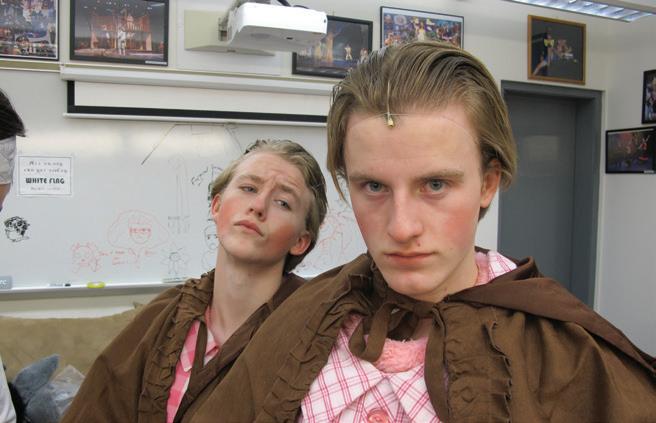
Brooks: Do you take inspiration from other shows for the set you create?
Michael: I think acting's something everyone should try at least once in their life. Some sort of public performance— whether that's music, being onstage, or something else—I think everyone should do something that puts them out there. I think it helps everyone grow as a person. For technical crew, I’d recommend anyone give it a try because you can learn skills you will use for the rest of your life. If you are ever a homeowner, the ability to use some of the power tools, for example, is something that will be invaluable to you in the future. There are good life lessons to learn in all of theater.











by ralph wear

When I think about that place where I lit fres, ran unsupervised and unceasing, and spent hours around the old hearth, I see Hazel.
And her jumping-up and in and out of the four-by-four’s path. Simon, never-failing to stand on the sofa and lick my face, no matter what he’d been into. I remember Lulu, always-growly, and older than I was young. Sweet Maggy, tumor-ridden, bed-ridden, who they all protected. I only went on holy days, I never saw them die.

The word which you see on the cover is the product of the creative genius of the staff; and, with the exception of identical spelling and pronunciation, has no connection with any word in the English or any other language. In plain Woodberrian, it has one meaning only–the literary magazine of your school.
Frank Davenport, Jr. 1949 Editor-in-Chief


This, the 76th volume of The Talon, is the annual literary arts publication of Woodberry Forest School. First published in 1949, the magazine was originally issued quarterly and cost 35 cents a copy. Publication of The Talon is now funded by Woodberry Forest School.
The editors of The Talon encourage submissions from all members of the Woodberry Forest community. All opinions expressed within this magazine are the intellectual property of the authors and artists and do not represent the views of Woodberry Forest School.
Works are selected through blind review by student boards with expertise in the fields of art, prose, poetry, and photography. New editors are selected from the review boards and the student body by the current editors and the faculty advisors. Authors and artists can apply for review board membership at the end of each academic year.
The editors of The Talon create the magazine in the course Design and Editing for Literary Arts Publications and during their free time. Brooks McCall and Gray Kallen managed the design of the magazine with the assistance of the
editorial team.
This issue of The Talon was produced on iMacs using Adobe Creative Cloud. Body text is set in Garamond Premier Pro. McClung Companies in Waynesboro, Virginia, prints 550 perfect-bound copies.
The magazines are distributed to the community by the editorial staff in May of each academic year.
The Talon is a member of the Columbia Scholastic Press Association and the National Scholastic Press Association.











by charles horner

In summer’s lull, the brain does moosh,
Like an ever-fab-fabbening toosh;
Like stinky socks, like eggs gone bad—
Te brain’s no longer neuron-clad!
But then things go from bad to worse
As pool drawn days set chloriney-curse;
From this amoeba all thoughts do fy—
All what you’ve learned is bid goodbye!
Be gone Declaration of… whatever its called;
Math and science GO! gloomed and galled!
Homework and due dates go to hell, I say, And essays—yikes—away! Away!
